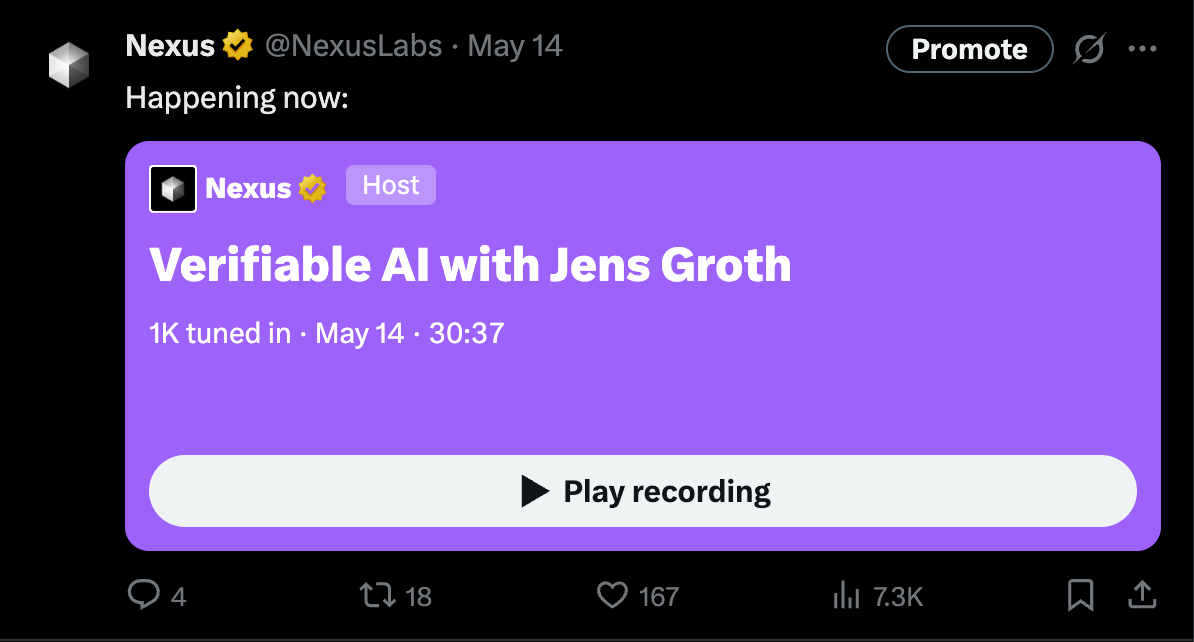Exponential Episode 25: Invisible Infrastructure
In this episode of Exponential, Jin Kwon, co-founder of saga.xyz, explains how blockchain infrastructure will disappear into the background.

In a recent Nexus X Space, Nexus Chief Scientist Jens Groth, a pioneer in zero-knowledge cryptography, unpacked what verifiability means in the age of intelligent machines. Building on themes from “Verification in the Age of Exponential Intelligence” and Nexus’s Verifiable AI Lab announcement, the conversation traced the arc from theory to infrastructure and from deep technical roots to societal implications.

As large language models and generative AI systems become ubiquitous, Jens emphasized a fundamental challenge: we are increasingly reliant on outputs we cannot audit. Whether it’s a financial decision, a medical recommendation, or a strategic policy brief, AI systems now shape outcomes that matter. But unlike traditional computation, these outcomes are rarely accompanied by a verifiable trace.
“We’re at the point where the speed of progress is outpacing our ability to verify. That’s dangerous — not just technically, but civically.”
Jen's perspective is shaped by decades of work in cryptographic proof systems, including some of the foundational research behind SNARKs and zero-knowledge protocols. But rather than focusing on legacy blockchain applications, he reframed these tools for the AI era.
“What we need now is not just proof of computation, but proof of reasoning. If we want to trust AI at scale, we need infrastructure that lets us inspect and verify its thinking.”
This redefinition moves verification from a narrow technical term to a broad civilizational lever. Jens described the mission of the Nexus Verifiable AI Lab as precisely this: re-architecting AI systems so that verification is not an afterthought.
The rapid emergence of systems that outstrip human reasoning creates technical and cultural challenges.
“Civilization has to go into startup mode. Everyone — from universities to governments to companies — needs to act like they’re building from scratch. That’s the only way we keep up with what AI is changing.”
This shift, Jens noted, requires more than just speed. It calls for deep collaboration across disciplines, new funding structures, and a willingness to rethink foundational assumptions about how we trust, evaluate, and govern machine outputs.
Looking ahead, the conversation underscored Nexus’s broader vision: a Verifiable Internet where information is not just abundant, but accountable. From AI-generated research papers to real-time inference across distributed models, the goal is a world where outputs are always accompanied by proofs.
Groth closed with both urgency and optimism:
“This is a moment of reinvention. We have the cryptographic tools. We have the AI accelerants. Now it’s about combining them into something new — something trustworthy.”